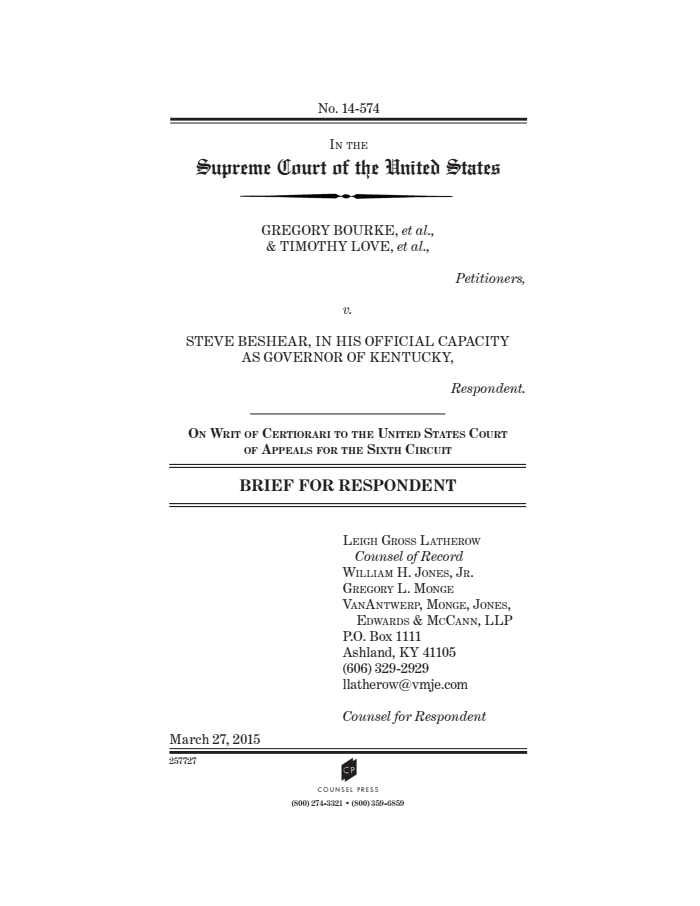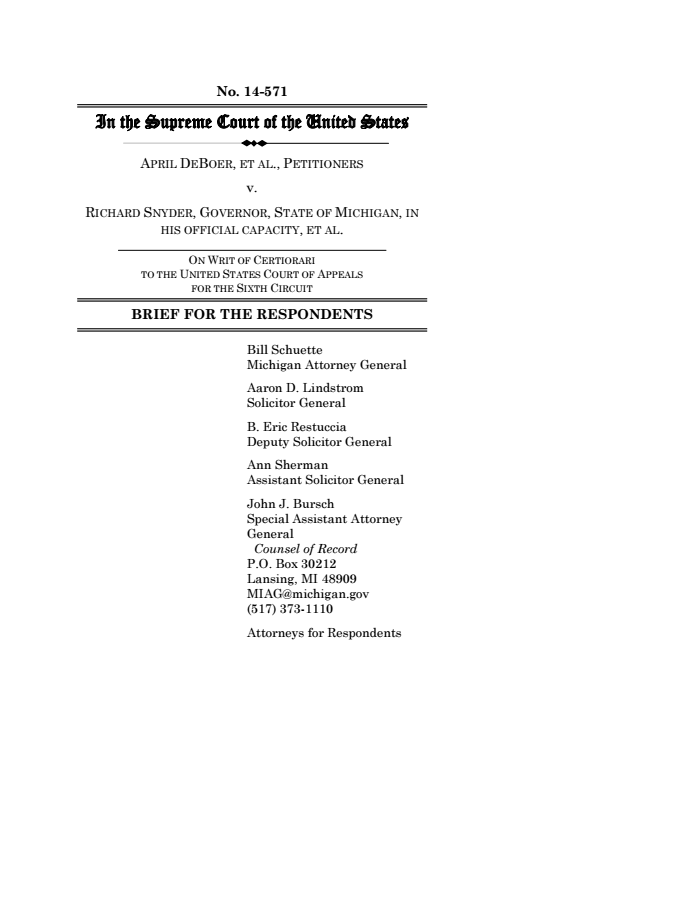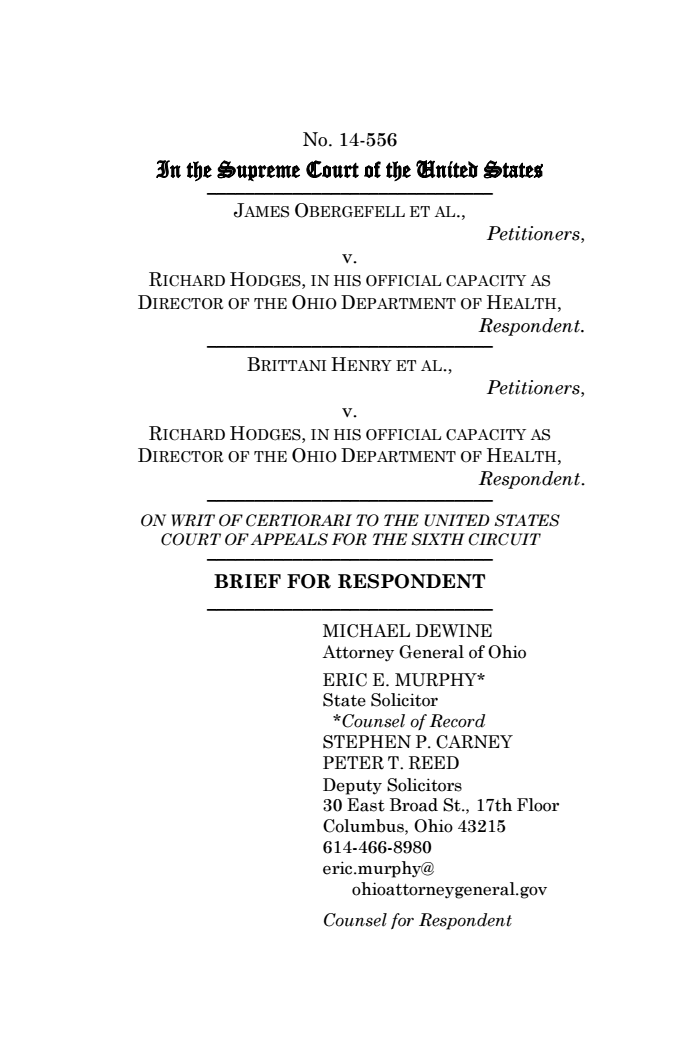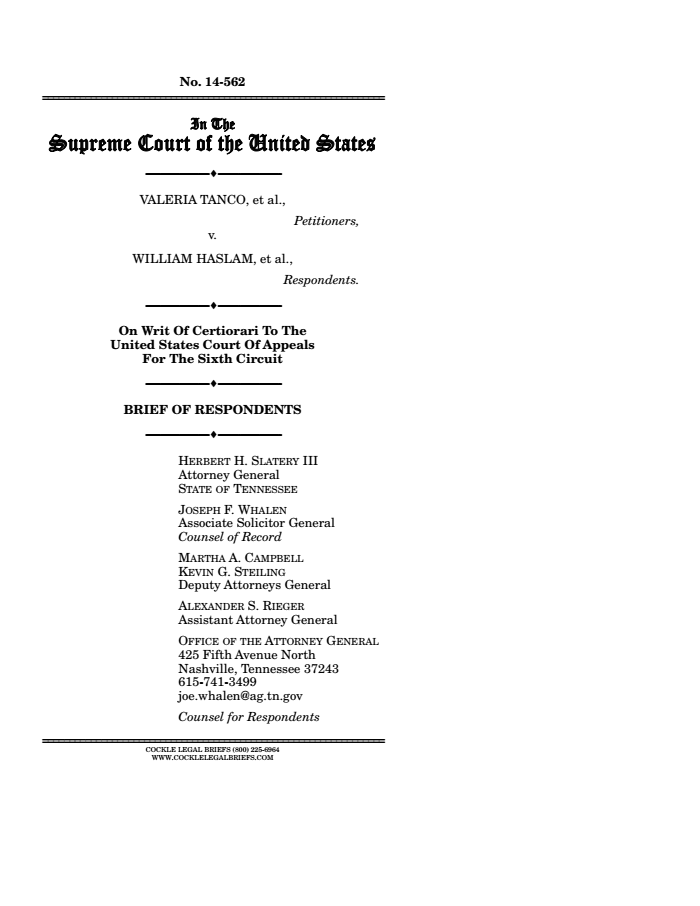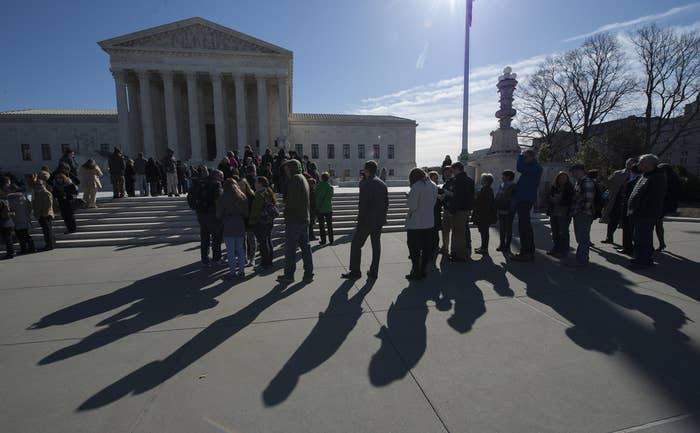
WASHINGTON — The four states defending bans on same-sex couples' marriages and recognition of those marriages at the Supreme Court are due to file their written arguments with the justices on Friday.
In Michigan, where a same-sex couple wishes to marry and has sued the state, the state filed its brief with the Supreme Court on Friday afternoon, arguing that the Constitution does not require that states allow same-sex couples to marry.
"This case is not about the best definition of marriage or any stereotypes about families. Families come in all types, and parents of all types—married or single, gay or straight—love their children," lawyers for the state write. "This case is about whether the Fourteenth Amendment imposes a single marriage view on all states such that the people have no right to decide. It does not."
Former Michigan Solicitor General John Bursch has been brought back on board as the counsel of record for the state and will be arguing before the justices in defense of such bans for Michigan and Kentucky on April 28.
Tennessee Associate Solicitor General Joseph Whalen will be arguing in defense of recognition bans for Tennessee, Kentucky, and Ohio.
In Ohio, where the state's law and amendment banning recognition of same-sex couples' marriages granted elsewhere are being challenged, Attorney General Mike DeWine's office filed a brief arguing that the marriage issue is best left to the "democratic process" — an argument that formed a significant portion of the appeals court decision upholding the four states' bans.
Specifically, the brief argues, the Supreme Court's decision striking down the Defense of Marriage Act's federal recognition ban "best shows that this issue belongs with communities for collaborative resolution through vibrant democratic debate and consensus."
Tennessee Attorney General Herbert Slatery defended his state's recognition ban on far more direct grounds.
"Ultimately, Tennessee is not required to recognize petitioners' out-of-state same-sex marriages because its own marriage policy is indeed legitimate," the state's lawyers write. "Marriage cannot be separated from its procreative purpose, and the inherently procreative capacity of opposite-sex couples cannot be denied. Maintaining a traditional definition of marriage ensures that when couples procreate, the children will be born into a stable family unit, and the promotion of family stability is certainly a legitimate state interest."
Kentucky Gov. Steve Beshear, who has taken over defense of his state's ban after Attorney General Jack Conway declined to do so, is the sole state defending at the Supreme Court against both marriage and marriage recognition challenges.
In Beshear's filing, by outside counsel, he argues that "Kentucky's marriage statutes and constitutional amendment did not change the law in Kentucky. The laws reflect what has always been the law in the Commonwealth of Kentucky and the consensus of Kentucky communities – only traditional man-woman marriages will be licensed or recognized."

